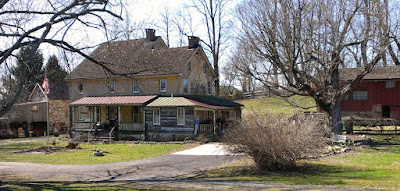Time is but the stream I go a-fishing in
I'm working on the second book in my Lively St. Lemeston series, Crimson Joy , and I just did something that I've done before, that I'll probably do again, and that I always feel conflicted about: I'm stealing a story. I'm taking something that happened to a real person, and giving it to my heroine. In this case, it's this anecdote, cited in a footnote of Electoral Behavior in Unreformed England , concerning “treating,” or the practice of patrons providing free food and drink for electors prior to a poll. I had a vague recollection of this anecdote... he ran out of ale, so he opened up his expensive French brandy? I couldn't remember where I'd seen it, but I thought I might have posted it on my blog. After backreading for half an hour, I almost gave up. I don't need the real anecdote, I thought. It's fiction. Maybe I can improve on it, make it even better than the real thing. Then I found the real thing. There is no improving on this. This is p

